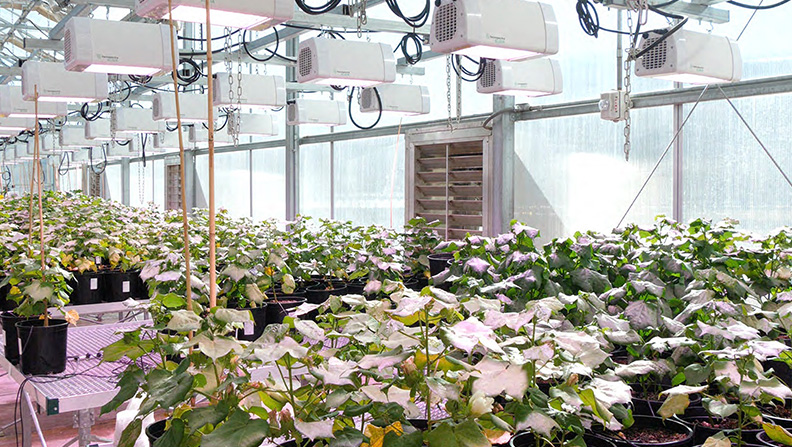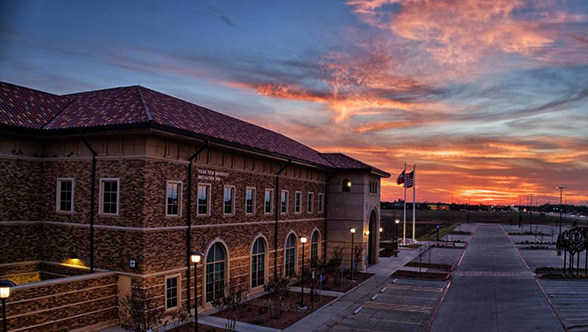The Next 100 Years

National defense, national security, cyber security, food safety and security, one-health science, and the issues faced by changing demographics are all opportunities for research at Texas Tech University in the future.
Joseph Heppert is the vice president for research and innovation at Texas Tech. As the university prepares to celebrate 100 years since its creation in 1923, Heppert looked forward to research the university will work on in the future.
“Texas Tech will be even more integrated with the community and the region than we are today. We will be involved in even more collaborative activity to build various kinds of technology centers that will create jobs and contribute to economic vitality in Lubbock,” Heppert said. “I think that includes areas like health care, energy, agriculture, and national security.”
Texas Tech will work closely with partners who choose to locate in the Texas Tech Research Park to benefit from the expertise of the university's faculty, and to be more closely positioned to interact with the university, Heppert said.
Texas Tech President Lawrence Schovanec said the university aims to strike a balance between traditional scholarship in a broad range of academic disciplines and funded research.
“We've always tried to engage in scholarship and funded research that makes a difference in West Texas, the state, the nation, and the world,” Schovanec said.
Planning for Future Research Underway
Over the coming decade, Texas Tech Research Park, Inc., a university-affiliated nonprofit, will create a minimum 40-acre Innovation District on the tract of land surrounding the Innovation Hub at Research Park, a 40,000 square foot facility near 4th St and Quaker Ave. The HUB, as it's known around campus, is Texas Tech's first business incubator, which provides space, programs and mentoring to startups in Lubbock. HUB startups have received $23.6 million in federal grant support, and the startups have reported overall capital investment amounting to $54 million.
“Our current vision for the Innovation District at TTU is built on a history of success with building programming and startup engagement with the HUB incubator,” said Kay Tindle, the interim associate vice president for strategic initiatives & innovation and assistant vice president for strategic research development in the Office of Research & Innovation.
The TTU Innovation District's early partnerships will focus on three areas of innovation: health care innovation, agricultural technologies, and energy resilience and national security. She said the areas were chosen because they draw on the strengths of Texas Tech and Texas Tech University Health Sciences Center and directly benefit the regional economy – the Innovation District will exhibit an estimated $1 billion cumulative impact on the Lubbock economy over the next 5 years and within a decade could generate a $1 billion annual impact on the city and county economies.
Each area also supports a key local industry that was negatively impacted during the COVID-19 pandemic, which could mitigate further damage to the local economy in a future pandemic event.
“We believe Texas Tech research and development in these areas will elevate the university to new levels of national prominence and signal to the world that West Texas is a source of global solutions.”
“We believe Texas Tech research and development in these areas will elevate the university to new levels of national prominence and signal to the world that West Texas is a source of global solutions,” Tindle said.
Research Commercialization Setting Records
Efforts to increase research and innovation at Texas Tech, like the creation of the HUB, have already led to growth.

Texas Tech's commercialization of research has grown to historic highs in 2022. Through the third quarter of the fiscal year, new technology license agreements executed have grown to 32, a 100 percent increase year-to-date and already an annual record by 28 percent.
According to Cameron Smith, the commercialization director for the Texas Tech University System, the increase is directly indicative of the increased impact that Texas Tech technologies are having on society, with more technologies than ever being licensed to commercial partners and making their way to consumers.
New invention disclosures and issued patents are each up 24 percent year-to-date, speaking to the increased quality and strength of translational research across the campuses, Smith said.
Location is an Asset to Research
“It's important to acknowledge that public research universities like Texas Tech have a role to contribute to our broader understanding of the human condition, in addition to preparing students for the next phase of their lives and developing new technologies,” Heppert said.
But he said Texas Tech's very location may help researchers to understand problems in West Texas that are also present around the world.
“There are a group of challenges specific to communities that exist at the interface between rural and urban environments. In West Texas, we're in a great laboratory for understanding not only the conditions and challenges, but also the opportunities that exist for rural communities,” Heppert said.
Lubbock itself is “an island of urban activity in a great sea of very vibrant and important rural social and economic activity,” he said.
The West Texas region faces some of the same enormous challenges facing rural communities across the globe.
“Many of those challenges are common, whether you're in Africa or Europe or West Texas or China. The concept of the magnet of the great urban centers tending to depopulate rural communities can create challenges for ensuring those rural communities have sufficient access to resources like health care, nutrition, network bandwidth, and other things that help provide and ensure high quality of life, and sustain community economic success and vitality,” Heppert said.
President Schovanec echoed his belief that Texas Tech can aid the world.
“…we're the perfect laboratory to deal with the grand challenges of the world.”
“I think the amazing thing about Texas Tech is that in this isolated location, in some ways, we're the perfect laboratory to deal with the grand challenges of the world,” Schovanec said.
Heppert said it is vital for Texas Tech to be a partner with the communities surrounding it.
“We need to listen, we need to learn, we need to understand the perceptions of individuals living and working to make those communities successful, what they see as their greatest barriers, and their greatest opportunities,” Heppert said.
